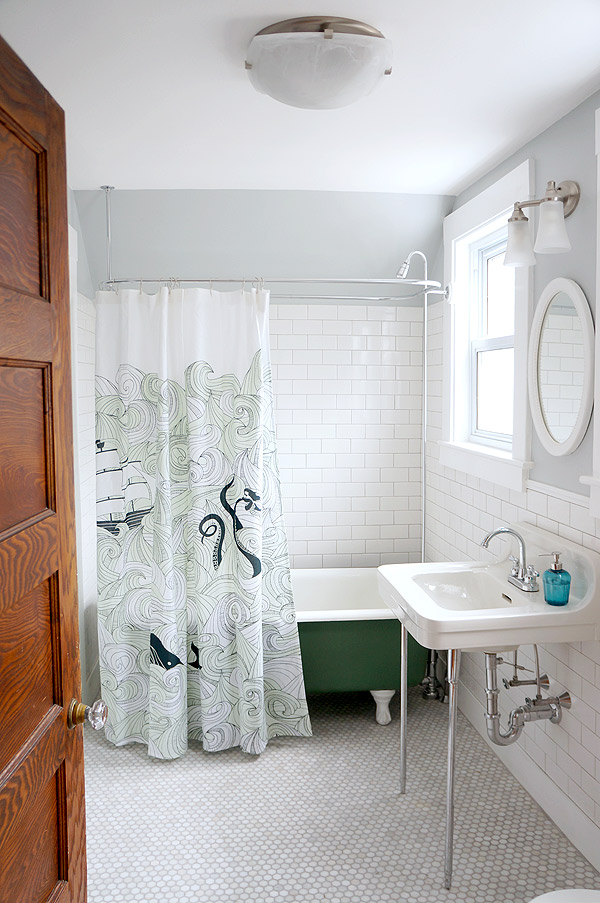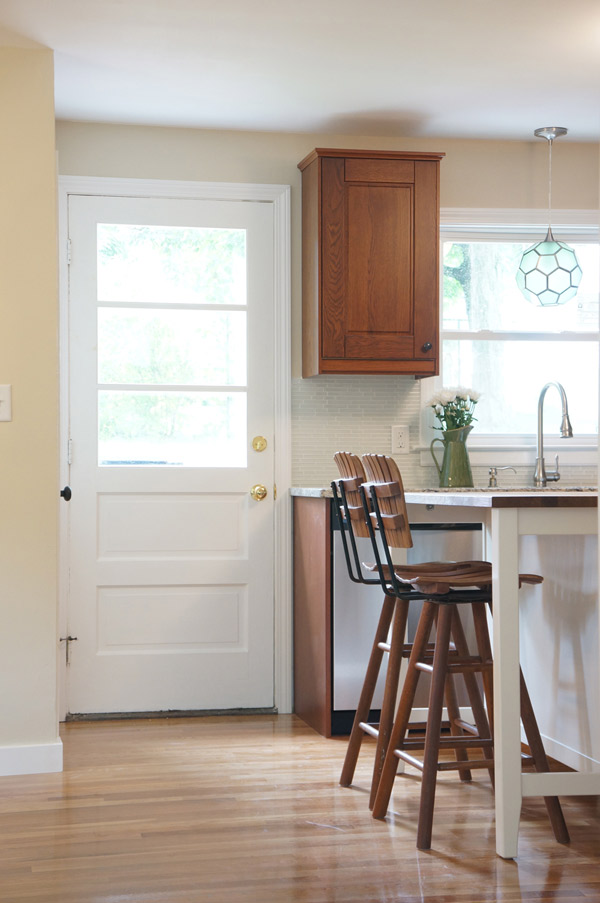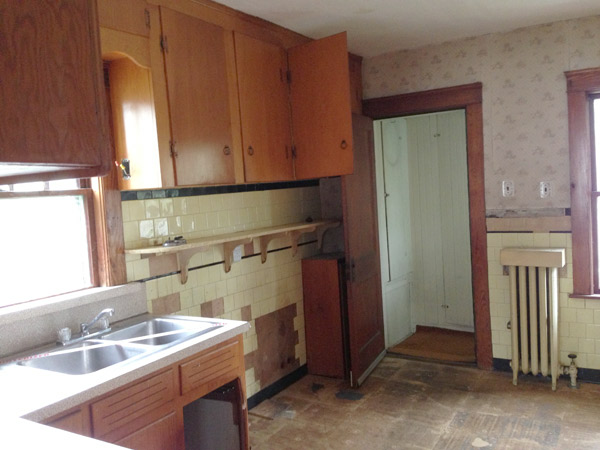This will be the last 3rd of the Flipping Q&A for now. In cased you missed them, we already talked about getting the flips, and renovating them. Today's questions are a bit more personal. What is your greatest challenge when it comes to flipping?
I am, lol. Seriously though, it's figuring out my limitations. What do I have time to really do? What can I handle on my own? What can't I handle on my own? And how can I do this all without getting burnt out? That last one is the biggie. Still haven't perfected that one, but I'm working on it. The design aspect of these houses is the easy and fun part for me, it's the project management part that I still need to work the kinks out of.
What is the best part about flipping?
The best moment is when the room comes together and everyone else gets to see what's been floating around in my head. I visualized the end result from the beginning so I love it when I finally get to share that. 'See! That's why I made all these decisions that you thought I was crazy for! Because I knew THIS would be the result.'
You spend so much time and energy on these houses, isn't it sad to see them go?
Surprisingly no. I renovate them with the buyers in mind, not for myself so it doesn't feel so personal. I stand behind every single thing I do to my houses, but if it was my own house, I would definitely be throwing more color everywhere and spending a few extra bucks to make it perfect for exactly how we live. I do get a bit melancholy when I drive away for the last time and drive by occasionally to make sure the houses are being loved. That being said, though, once I finish the houses, I just want them gone. After my renovations are done, I just worry about all the minutia until the moment we close and breathe a huge sign of relief when the deal is done.
What would be your dream project?
My dream project would be our next house. We'll see what the reality is when it comes time, but Hubby and I have grand dreams of getting a fixer-upper Victorian and renovating it to the nines. All the mechanical systems would be brand new and I'd work my magic and go picking and treasure hunting for a lot of the finishes to make the house truly special. Victorian houses are what lead me to fall in love with design in the first place and I've always wanted to own one.
Is this experience what you’d hoped it would be? What has surprised you the most so far?
I have no idea what I expected going into this, but I don't think I could have ever expected what it's turned into. I think what's surprised me the most is how personally invested I get into the projects. Not just hours (which are many more than expected), but how much pressure I put on myself to get every detail right. It is grueling, which is apparently why my own house doesn't get any attention these days, but it's more than a little fun to take a house that no one even looked at before and elicit a 'wow' reaction.
And here's the doozey of a question:
Are you happy you made the switch from a regular 9-to-5 gig to your new adventure? Is there anything you miss from your old life? Is there anything you feel you’ve gained in your new life?
I've never regretted quitting my 9to5. I felt like I was just a cog in the machine and now I get to have a bit more impact. Even if it's only an impact to the family who is so excited to be buying one of my houses. Don't get me wrong, I worked for a good company and the commercial architecture and design industry can be pretty neat at times- it just wasn't for me. I do miss the regular hours (and not thinking about working almost every waking moment) and I miss the people. Emphasis on the people. I miss the individuals I left, but I also miss the daily interactions. There are many days where I'm at the flip and on my own for the entire day. By the time I get home, I want to chat Hubby's ear off and with the poor guy in sales, talking all day, he yearns for quite at the end of a long day. Even though some days are trying, I think I've gained everything from my 'new life.' Not only do I have the flexibility to work my own schedule and the projects that I want, I've regained my 'self' that I seemed to lose in my old career path. Finding myself and my passions again is worth the near panic attack I had when giving my 2 weeks notice. It's worth the late nights I put in when I'm trying to rush to get a house listed. It's worth the literal scars I have from renovating, and it's worth being covered in paint and demo dust for months because now I feel like I'm headed in the right direction.
Wow, ok, ended up baring a bit more there than anticipated, but I told you I'd answer the flipping questions you really wanted to know! Thanks for all the questions submitted- I hope I answered as many as possible!
Have a wonderful holiday weekend!













